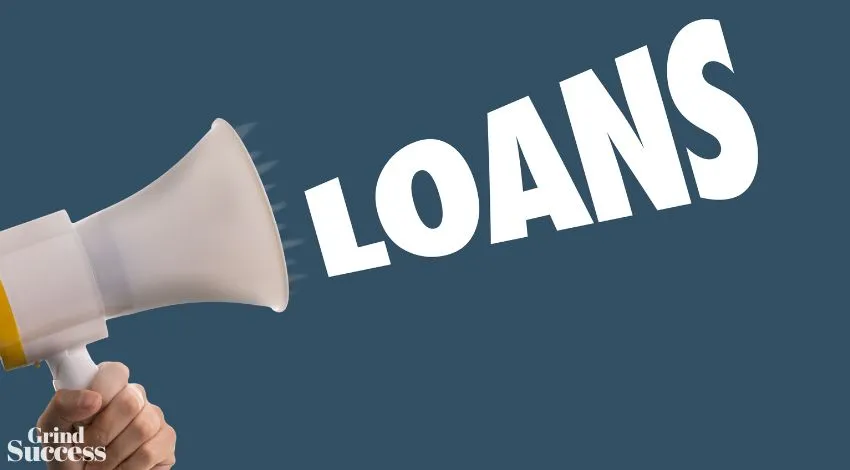Collateral Options for Securing MSME Loans

Micro, Small, and Medium Enterprises (MSMEs) play a pivotal role in the economic development of any country. They contribute significantly to employment generation, GDP growth, and poverty reduction. However, one of the primary challenges MSMEs face is access to finance.
That means many MSMEs require loans to start or expand their businesses, but securing these loans can be daunting due to limited financial resources, business loan interest rates, and a lack of collateral.
So, keeping their financial needs in mind, let’s explore different collateral options for securing MSME loans.
What is collateral?
Collateral is a valuable asset or property that a borrower pledges to a lender as security when obtaining an MSME loan or other types of loan.
It serves as a form of protection for the lender if the borrower fails to repay the loan according to the agreed-upon terms.
In such a scenario, the lender has the legal right to seize and sell the collateral to recover the outstanding loan amount.
Collateral can take various forms, including real estate, vehicles, equipment, inventory, accounts receivable, investments, and personal assets. The type of collateral required often depends on the nature of the loan and the lender’s policies.
Collateral plays a vital role in lending because it reduces the lender’s risk, making it more likely for borrowers to access loans and obtain favourable terms. However, borrowers should be aware of the potential consequences of defaulting on a secured loan, which can lead to the loss of the pledged collateral.
Collateral Options Available to MSMEs
1. Real Estate
Real estate, such as land or property, has long been a popular choice for collateral when securing MSME loans. Lenders often consider real estate a valuable asset that can be sold to recover the loan amount in case of default.
However, this option may not be feasible for many MSMEs, especially those in the initial stages of their business journey, as they may not own significant property.
2. Vehicles and Equipment
Businesses in industries like transportation, construction, and manufacturing can use their vehicles and equipment as collateral. Lenders evaluate these assets’ condition, value, and utility before approving a loan.
This type of collateral is especially suitable for businesses that rely heavily on specialized machinery or a fleet of vehicles.
Equipment financing or vehicle-backed loans can help businesses acquire or upgrade their equipment or vehicles without liquidating other assets.
3. Personal Guarantees
Lenders may accept personal guarantees from business owners or directors when the business lacks substantial assets. This means that individuals personally vouch for the loan’s repayment, taking on personal liability in case of default.
Personal guarantees can be viable for startups or small businesses without extensive assets but with strong personal creditworthiness.
4. Intellectual Property
These assets can be used as collateral for businesses with valuable intellectual property (IP), such as patents, trademarks, or copyrights. Before approving a loan, lenders assess the IP’s value, market potential, and legal status.
Intellectual property-backed loans are especially relevant for technology-based startups, creative businesses, or companies with unique products or services protected by patents or trademarks.
5. Inventory
Inventory can serve as collateral for retail, wholesale, or manufacturing businesses. Lenders assess the value and marketability of the inventory to determine its suitability as collateral.
This type of collateral can be particularly beneficial during seasonal fluctuations when businesses need extra capital to manage their inventory levels.
Inventory financing allows businesses to leverage their current stock to secure a loan, ensuring they can meet customer demand and grow their operations.
6. Jewellery and Valuables
Personal valuables such as jewellery, art, antiques, and collectables can also be used as collateral for loans. These items are typically appraised to determine their value, and the lender may hold them in safekeeping until the loan is repaid.
Pawn Shops often provide loans in exchange for valuable items as collateral. If the borrower fails to repay the loan with interest within the agreed-upon timeframe, the lender has the right to sell the collateral.
The Bottom Line
Securing MSME loans is vital for the growth and sustainability of MSMEs, but the lack of collateral can pose a significant hurdle. Fortunately, there are various collateral options available at bay.
When considering collateral options, MSMEs should assess their specific needs, risk tolerance, business loan interest rate, and the requirements of potential lenders.
It’s essential to conduct thorough research and consult with financial advisors to determine the most suitable collateral strategy.
With the right collateral, MSMEs can unlock the funding they need to innovate, expand, and thrive in today’s competitive business landscape.
For a simple and quick MSME loan approval, contact IIFL Finance right away!






